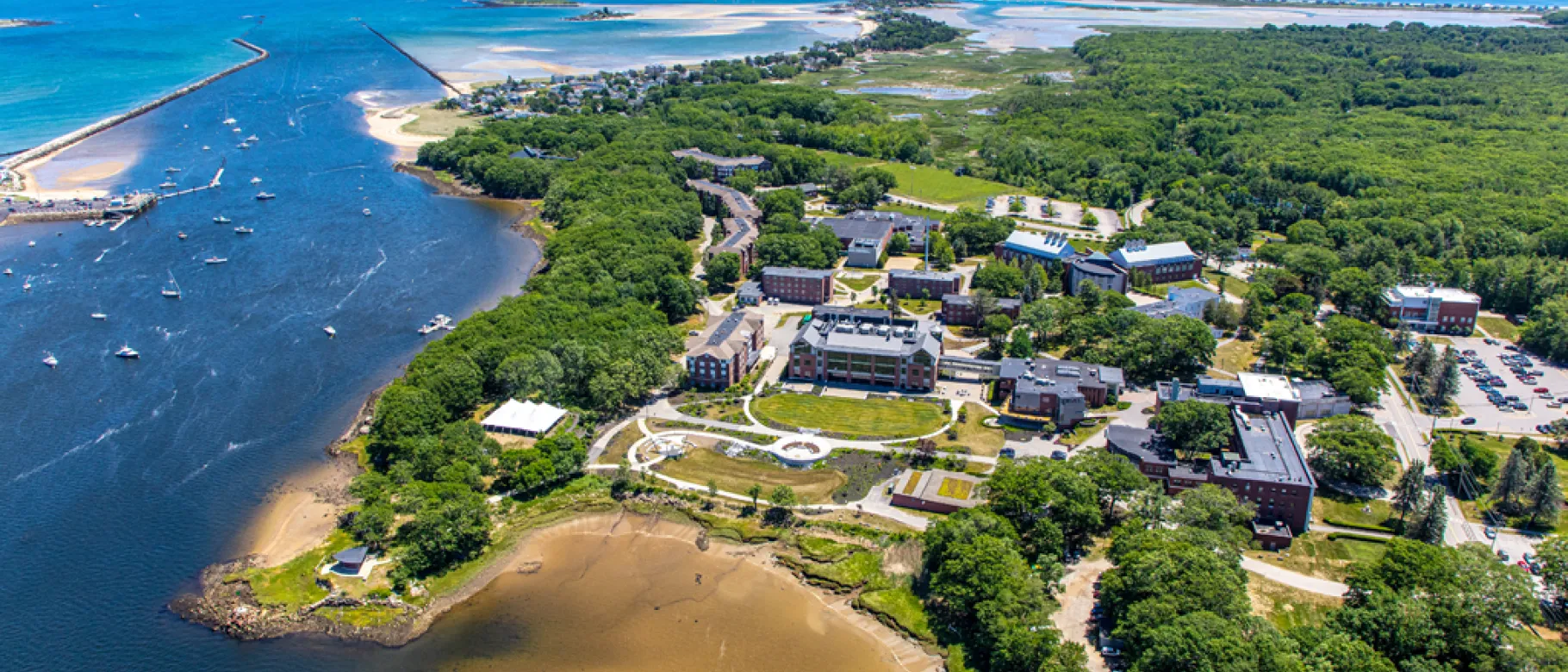UNE students to debate issues of Biddeford’s past at historic Meetinghouse April 25

It is 1774. Protests against taxes have become increasingly common and sometimes violent in Massachusetts. A gang of troublemakers dumped a shipload of tea into Boston harbor last winter. Now, an outraged Parliament plans to punish all of Massachusetts until the Bostonians pay for the tea they destroyed and submit to paying their taxes. Boston has asked all the towns of Massachusetts to join them in a boycott to protest the taxes. Should Biddeford join Boston and risk being branded as traitors to the crown?
This is the question that was debated at a Biddeford town meeting in 1774, and it will be contested once again by the students in Assistant Teaching Professor Jonathan DeCoster’s history class, “What Really Happened?” on Thursday, April 25, at 7 p.m. at the First Parish Meetinghouse, 7 Meeting House Road, Biddeford.
The event, "Biddeford 1774–2024: Debating the American Revolution," is free and open to the public.
DeCoster’s class has spent the semester intensively studying the years leading up to the American Revolution. Now, each student will take on the role of a real resident of Biddeford in 1774 and debate the issues at Biddeford’s First Parish Meetinghouse in front of an audience from both the UNE and Biddeford communities.
“The goal of the course is to help students see history as a series of investigations and arguments rather than a list of names and dates to be memorized,” explained DeCoster, Ph.D. “I thought it would be more meaningful, and hopefully more fun, if we did something that was connected to local history.”
DeCoster met with Paul McDonough, president of the Biddeford Historical Society, to learn about Biddeford’s Revolutionary history, and that’s when he began to imagine that the students might take their learning beyond the classroom.
“When Paul told me about the 1774 town meeting, I realized that it was the perfect debate for our course to focus on,” DeCoster said, noting that McDonough also offered the use of the Meetinghouse — built in 1759 and remodeled in 1840 —allowing the students to have their event in the same building in which the original meeting took place 250 years ago.
For their debate, the students are assigned the roles of a variety of Biddeford residents, including a judge, a minister, a lawyer’s wife, and a fisherman. Biddeford’s McArthur Library provided resources for the students to learn about their assigned characters. According to DeCoster, this range of perspectives will help students understand how regular people in small towns like Biddeford, and not only elites, experienced and even influenced historical events.
The students themselves bring diverse backgrounds to the debate, DeCoster said.
They range from first years to seniors, and their majors include medical biology, psychology, and political science. Even those who have taken history courses before have found this class to be a unique experience.
“I expected a debate when I signed up for this class,” said senior Christopher Weis, an oceanography major. “But I didn’t expect to learn about different interpretations of the American Revolution and then use them as a local Biddeford resident in 1774 for an actual debate down the road from campus. How awesome to apply what we’ve learned individually and as a class to something fun and hands on.”